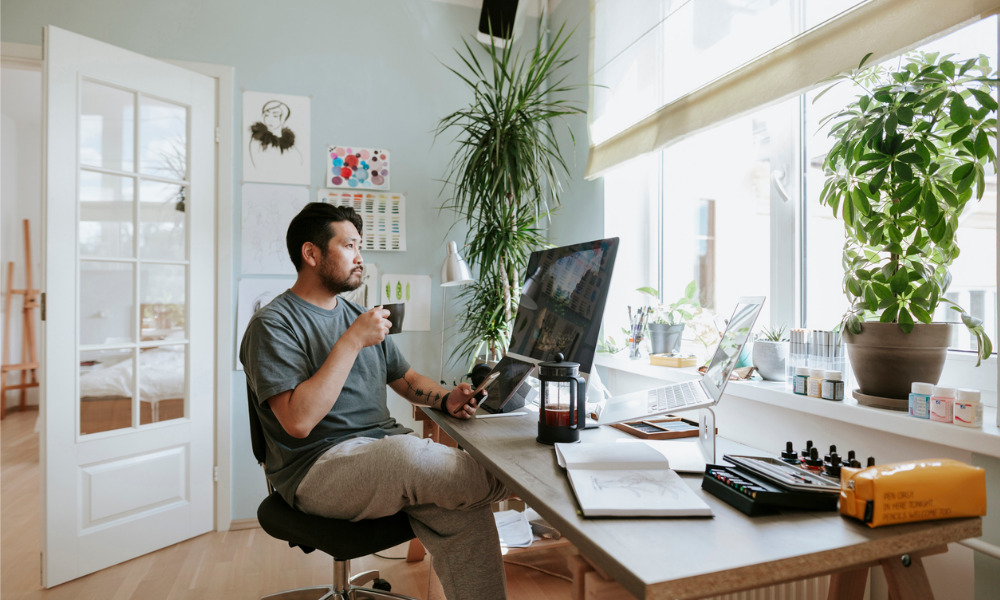
Here's where the company is investing to bring its future of work to life

Hybrid working has become the buzz word of 2021 as Australia’s office-based employees strive to hold onto the flexibility that has come with lockdowns. Better for the environment and for a less demanding work-life balance, many are hoping that commuting into the office five days a week is a thing of the past. For Telstra employees, that’s certainly true, thanks to the company’s wholehearted embrace of flexible working that began long before the pandemic.
Speaking to HRD, Casey Hotham, Telstra’s future workplace experience - product owner, and a panellist at the upcoming HR Summit Brisbane, said the company’s existing flex policy and the move to being a fully agile organisation lay a strong foundation for what was to come in 2020.
“Right now in the organisation we have about 15,000 of our 25,000-strong direct workforce working in agile at scale, so we've really gone over the hump in terms of the majority of the organisation working in that way,” she said. “No longer are we talking about individuals being in jobs. Now it’s talking about individual skills and capabilities in terms of playing to those strengths and therefore what type of work they do.
“If you think about it from a career experience perspective that's a much more enabling and empowering way for individuals to grow their career because they’re no longer stuck to a role.”
When COVID-19 arrived in Australia and the government signalled businesses to send their people home, Telstra was able to mobilise its staff to working remotely in just a few days. Hotham said the process was fairly seamless because of the foundations they had in place pre-Covid but since then, they’ve learnt a lot about how employees want to work going forward. She shared three key learnings that have driven how Telstra is designing its future of work.
Read more: Flexible working: Is it given or is it earned?
Hotham said the first thing organisations must do is make a deliberate decision on how they see their employees working both now and in the future. Rather than sit on the fence and watch what others are doing, she urged business leaders to be deliberate.
If the pandemic has shown us anything it’s that uncertainty is anxiety-inducing for the majority of people. It’s why employees are craving a sense of certainty from their employers about how they’ll be expected to work in the future. Business leaders who can’t give that may risk losing their top talent.
Being experience-led has been pivotal for Telstra, Hotham said, which has meant putting the voice of its people at the centre of decision making. She believes in relying on human-centric design principles around how Telstra listens to its people and acts on feedback. In short, her message is if something is consistently not working for your people, listen and take action.
“What I consistently say is people don't rock up to work to do a bad job,” she said. “That's the fault of the processes and the practices and everything else that sits within large complex organisations and policies.”
Telstra has recently released its second future workplace experience roadmap which sets out the company’s direction based on employee feedback and industry trends.
“We've made very deliberate decisions about where we want to invest financially in the organisation to improve the capacity and experience of our people. It’s focused on IT, tech and tools, which is a big one for our people in terms of creating really immersive experiences, but also the workspace,” she said. “We use workspace as a broad term depending on whether that’s at home, in an office, in one of our depots for our field staff or at the back of a retail store.”
Read more: Workplace COVID-19 vaccinations could begin in September
Hotham pointed to those three key pillars – people, IT/tech, and property – as being fundamental areas for businesses to invest in if they want to create immersive employee experiences suited to a hybrid way of working.
Looking ahead, she’s optimistic about a world beyond lockdowns when businesses like Telstra can unlock the full scale of opportunity that hybrid working offers its people. While many have had a taste of hybrid and fully remote working thanks to the in-and-out nature of Australia’s lockdowns, being able to work in a hybrid way when the world fully reopens will be another new experience.
“Embracing hybrid working has helped up to reimagine what working looks like for our people but I think we've only really scratched the surface in terms of what is possible,” she said.
To hear more from Casey Hotham, and the exciting line-up of top HR professionals speaking at this year’s event, click here to visit the HR Summit Brisbane website and register for your place.